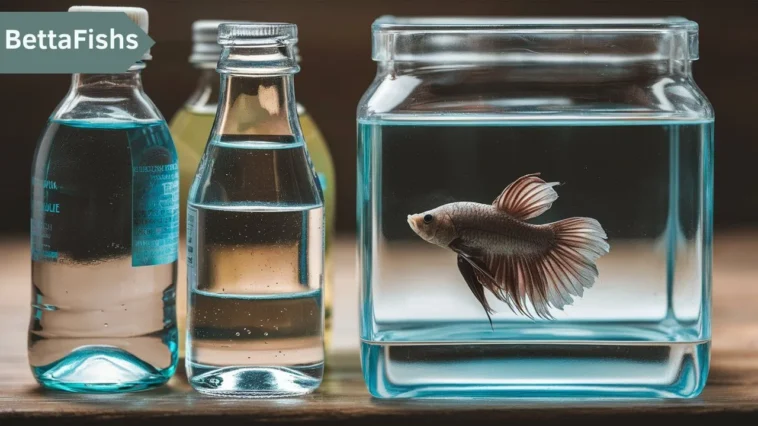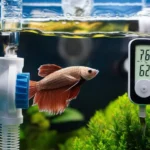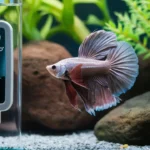Siamese fighting fish, or betta fish, are prized for their flowing fins and vivid colors. However, keeping them healthy goes beyond just admiring their beauty; it requires a keen understanding of their environment, particularly the water they live in.
One common question among Betta owners is “Can I use bottled water for Betta fish?”. This article dives deep into that question, providing a comprehensive guide to help you make the best decision for your Betta fish.
Betta Fish Needs
Natural Habitat of Betta Fish
Betta fish originate from the shallow waters of Thailand, where they thrive in rice paddies, slow-moving streams, and ponds. The water in these environments is typically warm, slightly acidic, and rich in organic material. Their natural habitat is crucial to replicating these conditions in a home aquarium.
Water Parameters for Betta Fish
Betta fish require specific water parameters to stay healthy:
- Temperature: 76-82°F (24-28°C)
- pH Level: 6.5-7.5
- Hardness: 5-20 dGH (degree of General Hardness)
Maintaining these parameters is essential, as any drastic changes can stress the fish and lead to health issues.
Types of Water Available
Tap Water
Tap water is the most accessible and commonly used water source for Betta tanks. However, it often contains chlorine, chloramines, and heavy metals that can be harmful to fish. Conditioning the water before use is necessary to remove these chemicals.
Bottled Water
Bottled water is another option considered by Betta owners. It’s readily available, but its suitability depends on the type and treatment process. Not all bottled water is created equal, and some may lack essential minerals or contain additives that are harmful to Betta fish.
Distilled Water
Distilled water is pure water with all minerals removed. While it may seem like a good option, its lack of essential minerals makes it unsuitable for Betta fish unless properly supplemented.
Filtered Water
Filtered water, whether through a home filtration system or a dedicated fish tank filter, can be a good option if the filtration process removes harmful chemicals while retaining necessary minerals.
Can You Use Bottled Water for Betta Fish?
What Is Bottled Water?
Bottled water is water that has been packaged for consumption. It comes in various forms, including spring water, mineral water, and purified water. Each type undergoes different treatments, affecting its suitability for fish tanks.
Common Types of Bottled Water
- Spring Water: Naturally sourced, often containing beneficial minerals.
- Purified Water: Treated to remove impurities, but may lack essential minerals.
- Mineral Water: Contains high levels of dissolved minerals, which may or may not be suitable depending on the specific mineral content.
Pros and Cons of Using Bottled Water
Pros:
- Convenience: Easy to find and use.
- Consistency: Often has stable water parameters.
Cons:
- Cost: More expensive than tap water.
- Lack of Nutrients: Some bottled water lacks essential minerals.
- Environmental Impact: Bottled water production and disposal contribute to environmental waste.
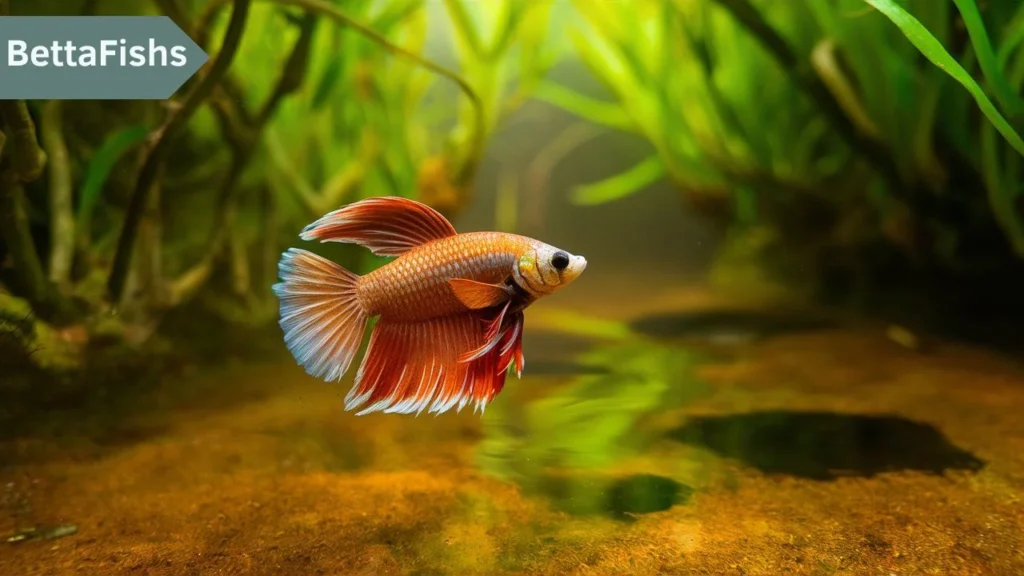
Factors to Consider When Using Bottled Water
pH Levels
Bettas thrive in slightly acidic to neutral water. Some bottled waters have a pH that is too high or too low, which can stress the fish. Always test the pH before using bottled water in your tank.
Minerals and Nutrients
Bettas need certain minerals like calcium and magnesium for their overall health. Bottled water that is too purified might lack these essential elements, leading to poor health over time.
Chlorine and Chloramines
Although most bottled water doesn’t contain chlorine or chloramines, it’s still important to check. These chemicals are toxic to fish and must be removed through conditioning if present.
Bottled Water Brands and Their Suitability
Not all bottled water brands are suitable for Betta fish. Research or test the specific brand before using it in your tank to ensure it meets the necessary water parameters.
How to Prepare Bottled Water for Betta Fish
Testing Water Parameters
Before introducing bottled water into your Betta tank, test its pH, hardness, and other parameters using a reliable water testing kit.
Adjusting pH Levels
If the pH of the bottled water is not within the ideal range for Betta fish, you can use pH adjusters to bring it to the desired level.
Removing Harmful Chemicals
Even if bottled water seems clean, it’s wise to use a water conditioner to eliminate any potentially harmful chemicals, such as chlorine or heavy metals.
Adding Necessary Minerals
If the bottled water lacks essential minerals, you can add them back using aquarium-specific mineral supplements.
Comparison: Bottled Water vs. Tap Water
Cost and Availability
Tap water is cheaper and more accessible than bottled water, which can become costly over time, especially if you have a large tank.
Environmental Impact
Using tap water with a conditioner is more environmentally friendly than relying on bottled water, which contributes to plastic waste.
Quality Control and Safety
Bottled water is often marketed as being of higher quality, but tap water can be just as safe if properly treated and tested regularly.
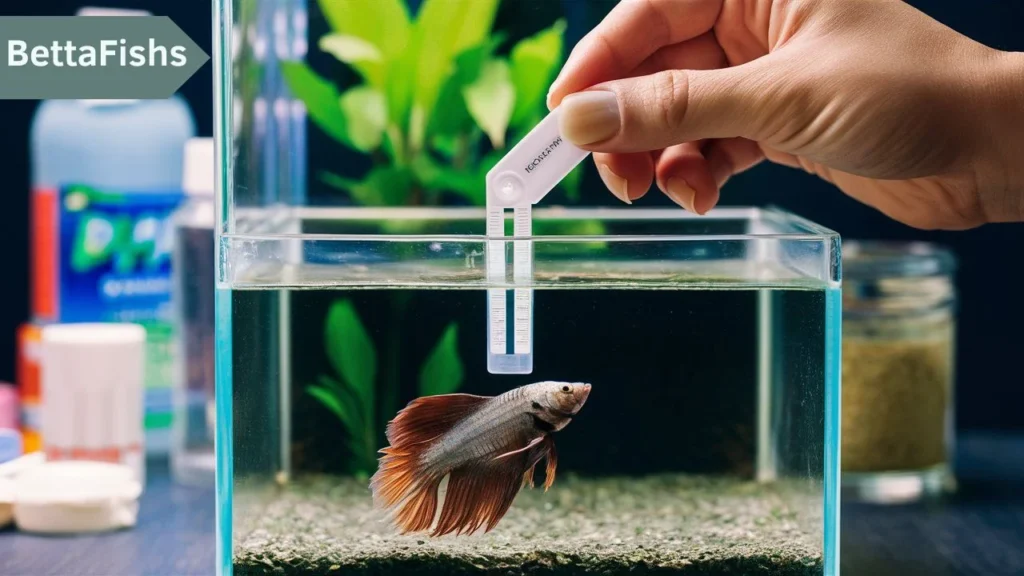
Myths About Bottled Water for Fish Tanks
Bottled Water Is Always Safe
This is a common misconception. Not all bottled water is safe for Betta fish; it depends on the brand and the specific water treatment processes used.
Bottled Water Doesn’t Require Conditioning
Even if bottled water appears pure, it may still contain chemicals or lack essential nutrients, making conditioning and testing necessary.
Steps to Safely Transition Betta Fish to Bottled Water
Gradual Water Changes
If you decide to switch to bottled water, do so gradually to avoid shocking your Betta with sudden changes in water chemistry.
Monitoring Fish Behavior
Keep an eye on your Betta’s behavior during the transition. Signs of stress, such as lethargy or loss of appetite, may indicate the need for further adjustments.
Avoiding Sudden Changes
Sudden changes in water parameters can be harmful. Always mix bottled water with the existing tank water to gradually acclimate your Betta.
Common Mistakes When Using Bottled Water
Using Distilled Water
Distilled water lacks essential minerals and should not be used for Betta fish unless properly supplemented.
Ignoring Water Testing
Never fill your Betta tank with water that hasn’t been tested first. Failing to do so can result in unsuitable conditions that harm your fish.
Overlooking Brand Differences
Different bottled water brands have varying mineral contents and pH levels. What works for one Betta tank may not work for another, so brand consistency is key.
Best Practices for Betta Fish Care
Regular Water Testing
Routine testing of water parameters is essential to maintaining a healthy environment for your Betta fish.
Maintaining a Stable Environment
Avoid frequent or drastic changes in water conditions, as stability is crucial for Betta’s health.
Regular Water Changes
Regular water changes, typically 20-30% per week, help maintain water quality and remove waste products.
Expert Opinions on Bottled Water for Betta Fish
What Aquarists Say
Many experienced aquarists prefer tap water treated with a conditioner over bottled water due to its cost-effectiveness and environmental benefits.
Scientific Studies and Findings
Research indicates that while bottled water can be used for Betta fish, it’s not necessarily superior to treated tap water and may require additional supplementation.
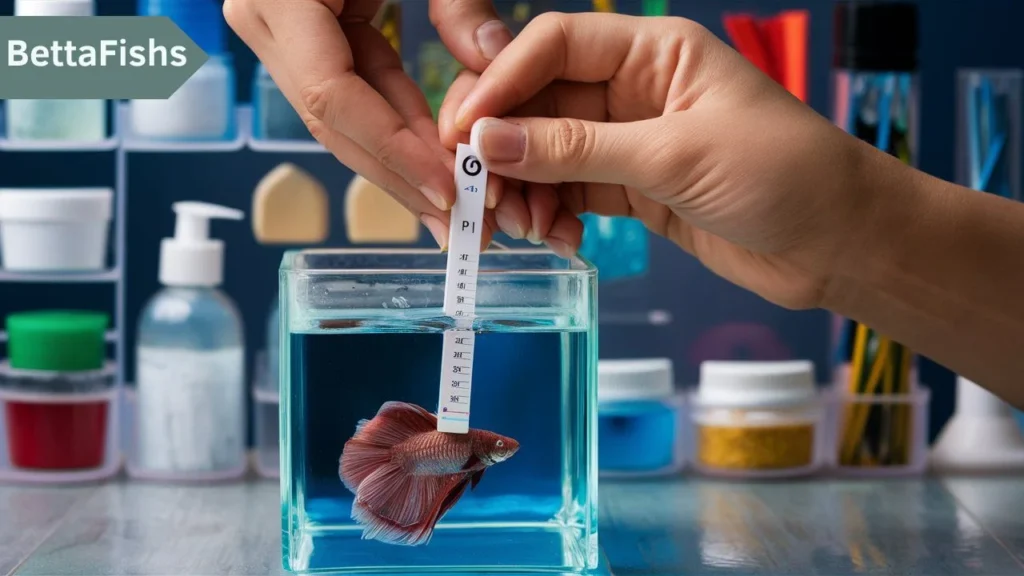
Conclusion
When it comes to choosing the right water for your Betta fish, bottled water can be a viable option, but it’s not without its challenges. It’s crucial to understand the specific needs of your Betta and ensure that any water you use—whether bottled, tap, or filtered—meets those requirements. Regular testing, proper conditioning, and careful monitoring will help you provide the best environment for your Betta, keeping them healthy and vibrant.
FAQs
Can Betta Fish Live in Tap Water?
Yes, Betta fish can live in tap water as long as it is properly conditioned to remove harmful chemicals like chlorine and chloramines.
Is Distilled Water Safe for Betta Fish?
No, distilled water is not recommended for Betta fish because it lacks essential minerals needed for their health.
How Can I Test My Betta’s Water Quality?
You can test your Betta’s water quality using an aquarium water testing kit that checks parameters like pH, hardness, ammonia, nitrite, and nitrate levels.
Do I Need to Condition Bottled Water?
Yes, even bottled water may need conditioning to adjust pH levels or add essential minerals that are beneficial to Betta fish.
What Are the Signs of Water Stress in Betta Fish?
Signs of water stress include lethargy, loss of appetite, clamped fins, and unusual swimming behavior. Monitoring your Betta closely can help you detect and address these issues early.


